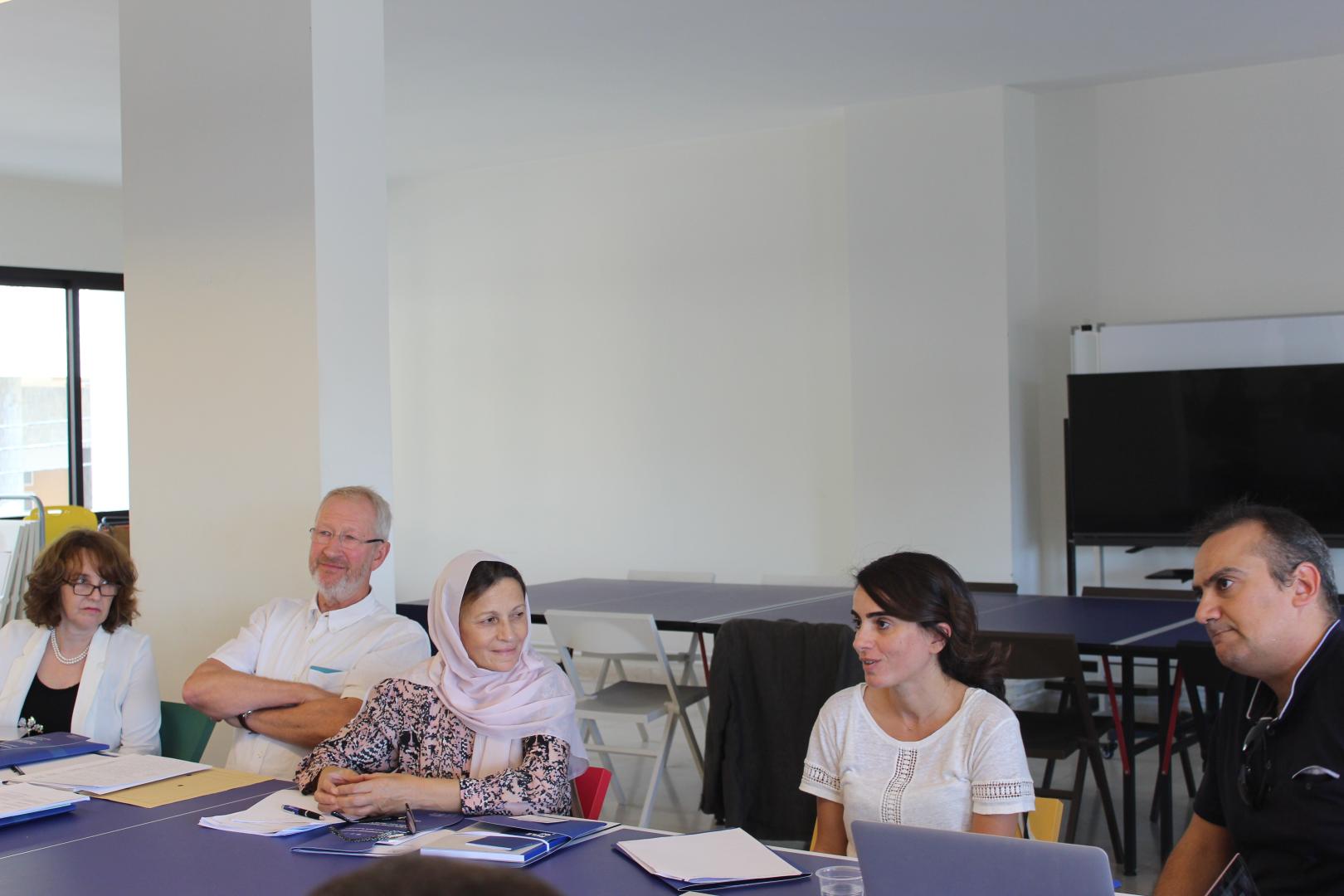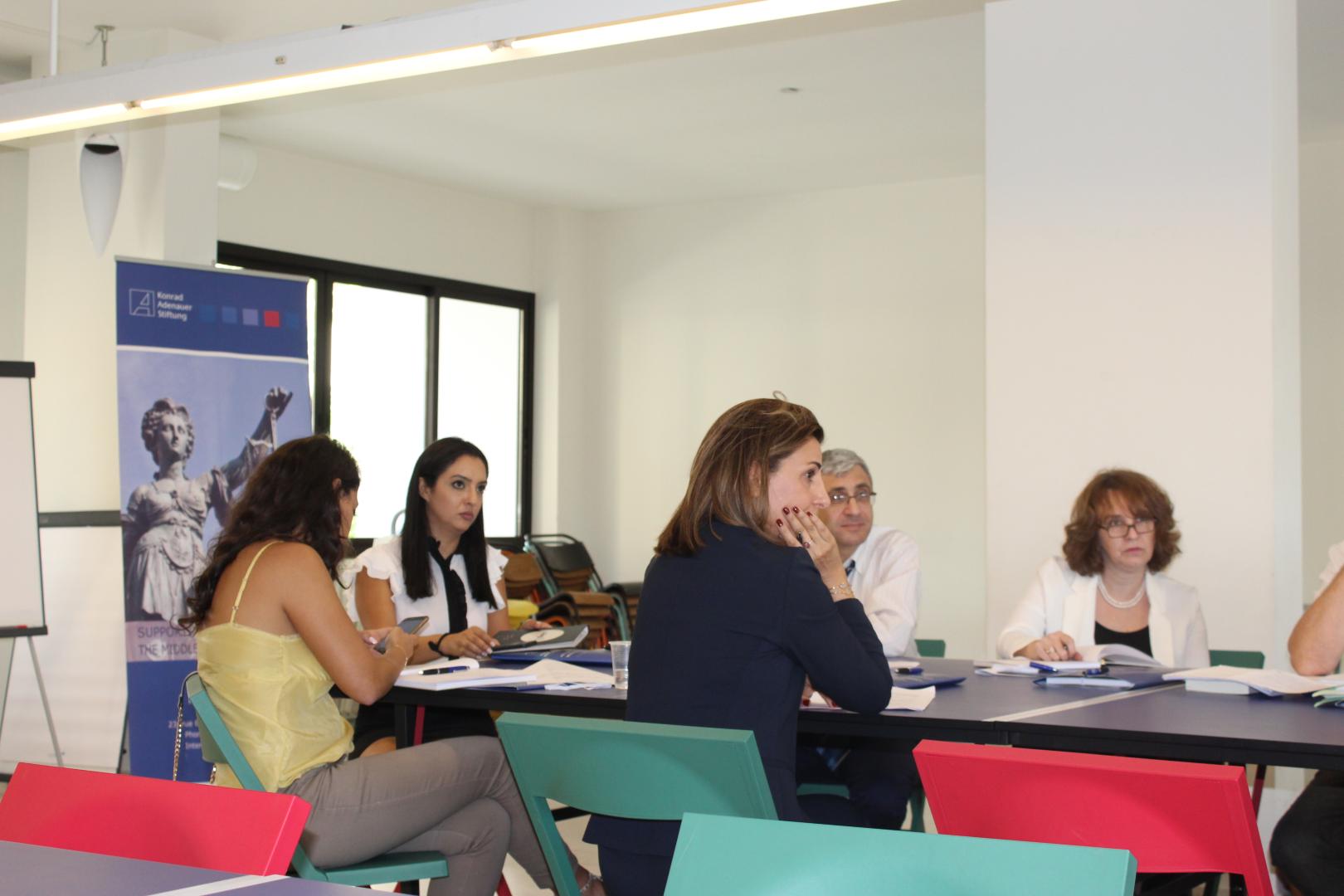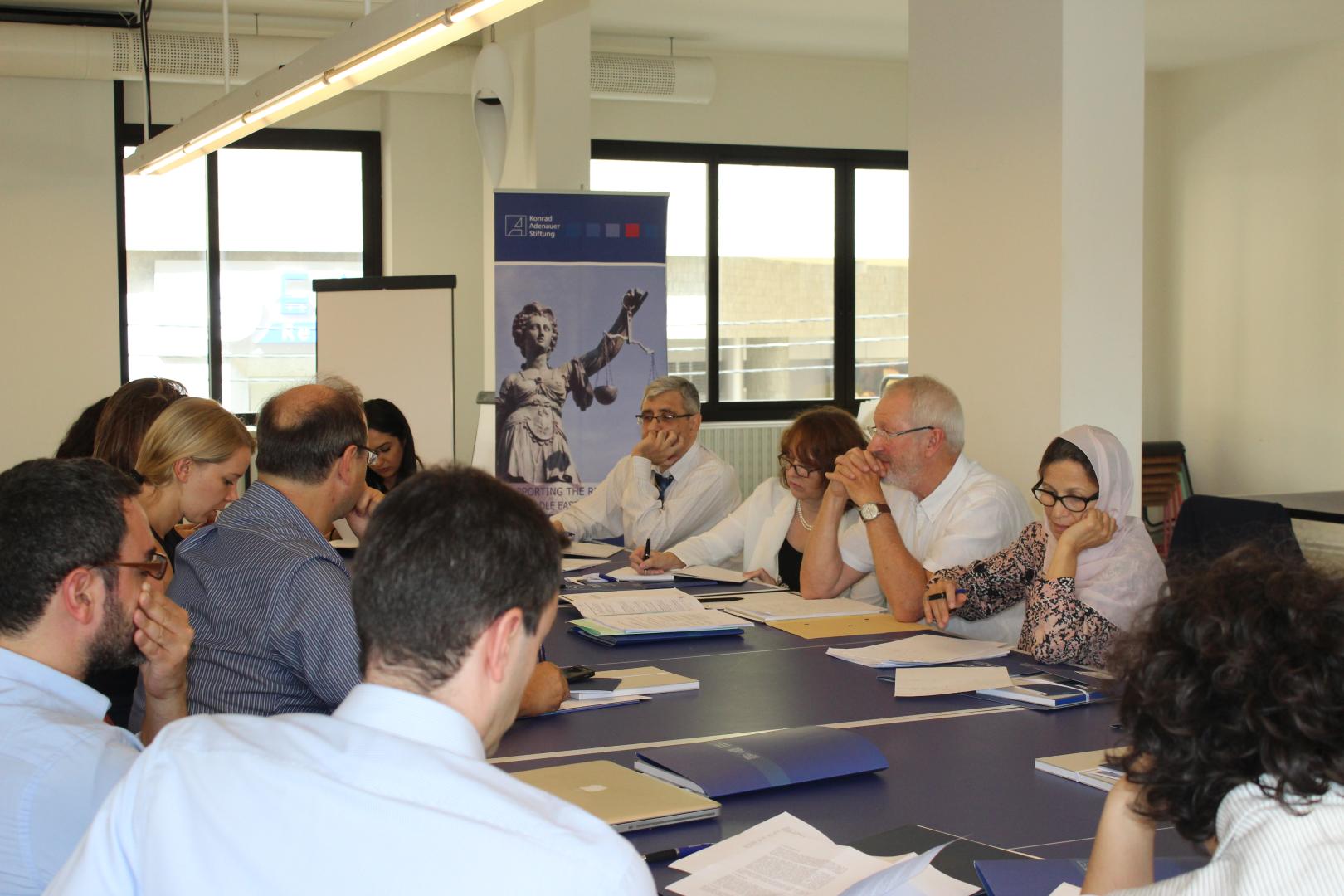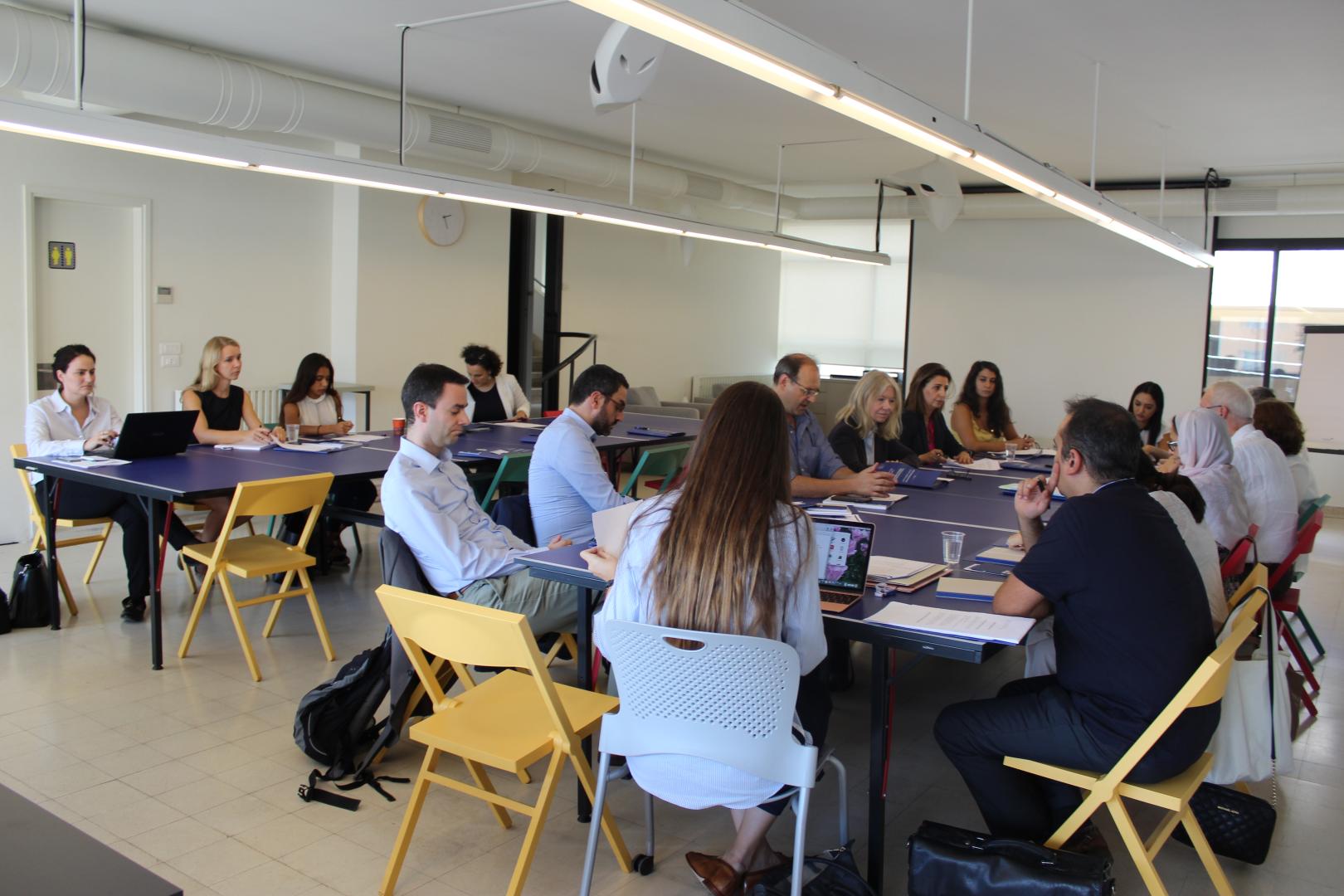Developing the Organization of Administrative Judiciary in Lebanon - Rule of Law Programme Middle East and North Africa
The workshop took place as part of a longer-term project to develop a legislative proposal on administrative jurisdiction in Lebanon.
First a lawyer, expert for the Lebanese public law, pointed out the problems of the organizational structures of administrative jurisdiction in Lebanon as the institutional frame has not been set to put the law into practice. Despite a statutory standardization that arranges for a first instance and different stages of proceedings dating back to 2000, the Conseil d'Etat is still the only administrative court in Lebanon. In addition its competences are being non-transparent. Thus, the Conseil d'Etat is not only a judicial organ, but the judges also perform consultative tasks in the legislative process at the request of the ministries, she says.
A former President of a German Administrative Court, then explained the organization of administrative jurisdiction in Germany and stated that a clear structure and the independence of judges, which should also be visible from the outside, are essential for a functioning system. This includes a constitutionally guaranteed system of stages of proceedings as well as clear criteria for the appointment and promotion of judges.
The former President of the Supreme Administrative Court of Tunisia, endorsed the German Judge's view and stressed the need for a clear definition of tasks and competences within the judiciary. Using Tunisia as an example, she then pointed out options for a positive development towards a transparent administrative judiciary.
The second part of the workshop was devoted to the independence and responsibility of administrative judges. The participating experts stated that in order to safeguard the moral independence and impartiality of a judge, it is necessary to institutionalize his rights and to provide procedural guarantees to safeguard this independence.
During the workshop, the work group assigned to drafting a legislative proposal on the reform of administrative jurisdiction in Lebanon had the opportunity to address questions to the experts and to gain new insights for further work on the reform proposal by comparing it with other legal systems.
Another workshop is planned for November 2018 and will deal, among other things, with the administrative court process, the role of the rapporteur and the executive, and the right of access to justice. A first report will be presented in December 2018 and the draft law is supposed to be completed in 2019.










